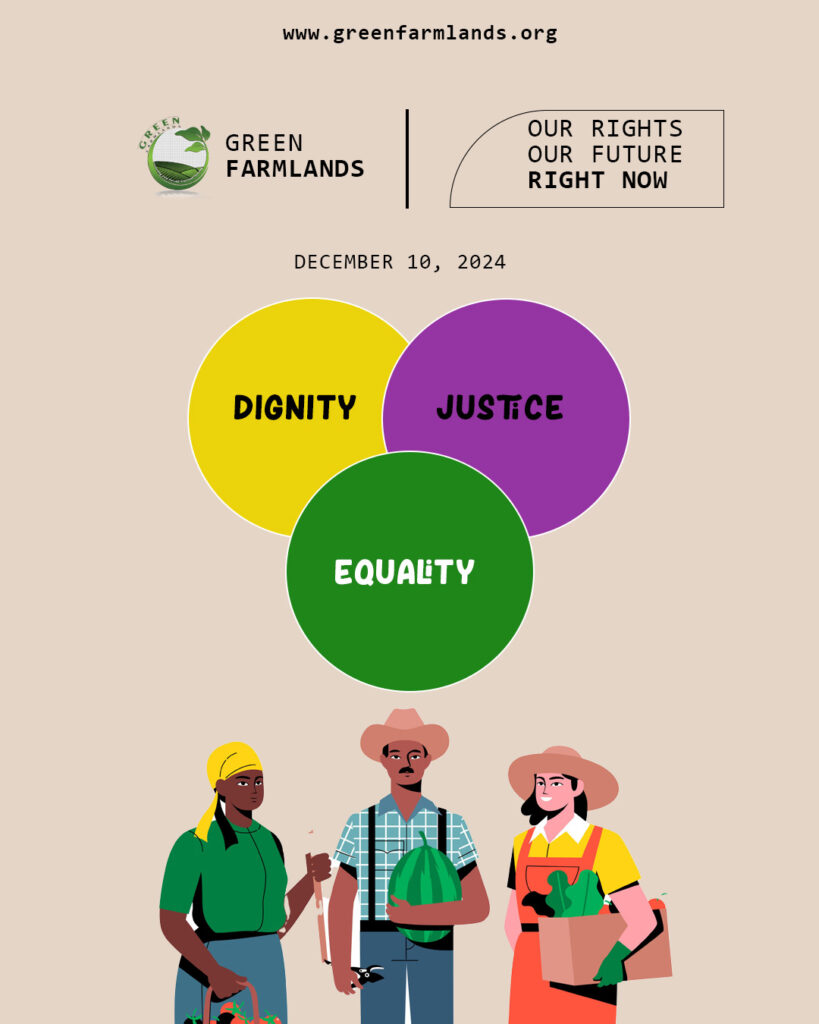
December 10th marks Human Rights Day, a reminder of the enduring importance of equality, justice, and dignity for all individuals worldwide. The 2024 theme, “Our Rights, Our Future, Right Now,” highlights the critical role human rights play in addressing pressing global challenges.
According to the United Nations, Human rights belong to everyone, regardless of race, gender, nationality, or beliefs. These fundamental rights include the right to life and access to necessities like food, ensuring dignity and equality for all. The United Nations emphasizes that human rights are not granted by states but are inherent to human existence.
The right to food is inclusive. It is not simply a right to a minimum ration of calories, proteins, and other specific nutrients. It is a right to all nutritional elements that a person needs to live a healthy and active life and to the means to access them. The right to adequate food is realized when every man, woman, and child, alone or in a community with others, has physical and economic access at all times to adequate food or means for its procurement.
The right to food and freedom from hunger can be emphasized on certain elements including;
Availability: Food must be available through production, purchase, or other means.
Accessibility: Economic and physical access to food must be guaranteed, ensuring affordability.
Adequacy: Food must meet dietary needs, considering factors like age, health, and occupation.
Considering the wide recognition of the Universal Declaration of Human Rights that everyone has the right to a standard of living adequate for the health and well-being of their family, some groups or individuals face specific hurdles in relation to the right to food including rural and urban poor, indigenous peoples, women and children.
Women play a key role in food production and achieving food security. For example, in sub-Saharan Africa, women account for approximately 70 percent of agricultural workers and 80 percent of food processors. Yet women are in many instances discriminated against in accessing the means for producing adequate food. Women also have specific dietary needs, particularly regarding their reproductive health. Infringement of the right to the proper food of women of childbearing age, including adolescent girls, could lead to life-threatening complications during pregnancy or delivery.
Young children on the other hand are dependent on their families or caregivers for food. Thus, the choice and capacity of families and caregivers to provide adequate nutrition to them have a significant impact on their enjoyment of the right to food.
The Convention on the Elimination of All Forms of Discrimination against Women protects women’s equal access to work, land, credit, income, and social security, which are essential to ensure women’s equal enjoyment of the right to food. Also,
The Convention on the Rights of the Child protects the child’s right to food in the context of the right to life, survival and development, health, nutrition, and an adequate standard of living. Protecting vulnerable groups ensures dignity and protection from hunger, malnutrition, and food insecurity for all.


